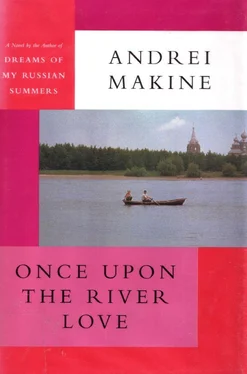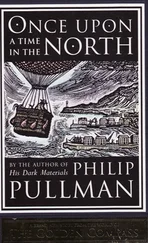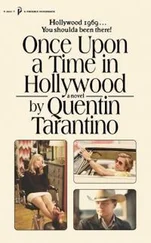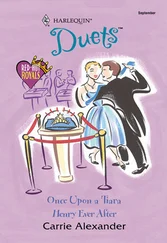Then one day he swapped a tiny gold nugget (we all had a few nuggets) for a colorful foreign postcard. The glossy picture showed a blue sea, an avenue lined with palm trees and white houses with big windows. This was Cuba. The newspapers were constantly speaking of this country and of its people, who had the courage to resist the might of the United States. His hatred of the strong found its global target: Samurai fell in love with the little island and detested the Americans. His romantic attachment was embodied in a feminine figure he dreamed of: a beautiful companion in arms, a young woman fighter with Creole comeliness, who wore a combat uniform with rolled-up sleeves…
But this love, just like the hatred, came too late. Revolutionary fervor was a thing of the past, and even in the depths of our Siberia they were beginning to make open fun of our old bearded friend. Likewise of Samurai, whose passion was known to everyone. The boys at school often sang for his benefit a jingle that had become very popular. It went to the tune of Castro's heroic "Barbudos" song, but the words were all different, tampered with:
Cuba , give us back our wheat. Give us back our vodka too. Your sugar's wet - and not too sweet. Fidel, take it back, fuck you!
Samurai looked at them with disdain. The insolence of the weak was a puzzle: these mockers knew that he would not condescend to give them a hiding… But deep inside, Samurai was troubled by a lot of embarrassing questions. Especially after the day when he received the ultimate blow below the belt from History.
It came at the end of a geography lesson. That day the teacher was talking about Central America. When the bell rang and the classroom emptied, Samurai walked up to the desk and took the colorful postcard with the view of Havana out of his bag. The azure sea, the palm trees, the white villas, the tanned strollers. The teacher studied it, then, turning it over, read the caption.
"Ah, of course," he confirmed. "But that was before the revolution! I was wondering…"
He fell silent, then handed the card back to Samurai and explained, turning away: "You know, they are in a rather difficult economic situation… Without our aid it would be really tough. An old friend of mine worked there as a volunteer. He says that even socks are rationed, one pair a year per person… Of course, it's the imperialist blockade that causes that…"
Samurai was stunned. So one must picture the bold "bar-budos," their automatic rifles in their hands, waiting in line to get a new pair of socks!
When Belmondo arrived, Samurai was sixteen. All the wretched questions provoked by his disillusioned love were in the process of turning into a trauma that prevented him from seeing, breathing, smiling. He had become strong, but the evil that he set out to combat renewed itself like the heads of the Hydra. With the arrival of a new team of loggers; with a new drunken brawl on the steps of the liquor store. At the very most, all he had managed to conquer was a narrow zone of security around his own person. Life did not change. And the fair companion in arms, in her khaki pants and her combat jacket with rolled-up sleeves, had not yet shown up.
While the Yankee blue jeans that had made their appearance on the chubby legs of a local apparatchik's son were wreaking havoc among the hearts of the local Siberian maidens…
So should he go on breaking branches with the edge of his hand? Crossing the river while holding an iron bar above his head, a substitute for a future automatic rifle? Rebuking drunken loggers? Cutting off the Hydra's heads and doubling the evil? Living as if on a blockaded island? Defending weak people, who then hurl their perfidious mockery at your back?
It was then that Samurai encountered Belmondo. He witnessed his pointless feats, his fight for fight's sake. He discovered that to take up arms could be beautiful. That landing a blow could have its elegance. That the gesture was often worth more than the effort's objective. That what counted was panache.
Samurai was discovering the bitter aesthetic of the desperate struggle against evil. He saw it as the only way out of the labyrinth of awkward questions. Yes, to take up arms, thinking only of the beauty of the combat! To hurl oneself as a single trooper into the action sequence of war. And to quit the field of battle before the grateful weak can come and praise you to the skies or reproach you for any excesses. Yes, to fight, knowing that victory would be short-lived. Like in the film… Though the publisher was vanquished, turned into a laughingstock, and lost his wig, he would soon return to his inaccessible office. But the beauty of those last few moments would be the hero's best reward. Embracing his lovely neighbor – now won back – he leans over the balcony and hurls the pages of his manuscript at the retreating publisher and his clique. What madness, but what a gesture!
A week after the first showing Samurai had a fight with two drunken truckers in the workers' canteen. All the conventions were respected in this classic barroom scenario. The strident shrieking of the canteen woman; the silence of the human herd gripped both by fear and by the reflex "It's got nothing to do with me." And the young male lead who rises to his feet at the end of the room and walks toward the two aggressors. The truckers were newcomers; they did not know that this young man's hand broke thick branches at the first blow. Two or three lunges from his hand-sword sufficed to evict them. But Samurai could no longer be content for the scene to end like that. He went back into the canteen. Watched by the diners, rigid in front of their plates, he put down a crumpled ruble note in front of the cashier, as she cowered behind her counter, and remarked: "Those miserable wretches forgot to pay for their soup."
Then he strode out into the icy wind, accompanied by a buzz of admiration…
Back home, he sat down in front of a mirror and stared at himself for a long time. A lock of dark hair fell across his brow; his nose was slightly squashed – the relic of some unequal combat; his lips were tensed in a determined Une; a heavy lower jaw was accustomed to taking cannonball blows from the weighty fists of men. He gave a friendly wink at the face looking back at him out of the mirror. He had recognized him. He had recognized himself… Never had our fabled Western World seemed so close!
The sun was rising as we came out of the taiga, heading for the valley of the Olyei. As if we were leaving the night behind us deep inside that sleeping kingdom of pine trees, where the great owl glided through the silvery shadows, seeking a refuge for the daylight hours.
The red disk appeared from behind a cold veil and slowly replaced the gray and blue tones with shades of pink. Shaking off our nocturnal torpor, we began to talk, to exchange impressions of the last performance. But above all, to the point of exhaustion and of losing our voices, to imitate Belmondo…
This time, on our sixteenth trip to see the film, Samurai went ahead of us a little, striking out with long strides over the plain, whose smooth mauve surface was so inviting. I stopped to wait for Utkin. As he left the shadows of the forest and emerged onto this great, luminous space, he swung around the tip of a small pine tree buried under the snow and came to join me.
His gaze always used to make me feel a bit uneasy. The mixture of jealousy, despair, and resignation with which he surveyed my face…
This time there was none of it. Dragging his injured leg, he came up to me, his right shoulder pointing toward the sky, and smiled. He looked at me squarely like an equal, with neither bitterness nor jealousy. His duckling's gait seemed no longer to preoccupy him. I was struck by the serenity of his face. As I set off again, I told myself that I had been seeing these calm and somehow wiser eyes for some time now. I slowed my speed somewhat, allowing myself to be overtaken. Replying absentmindedly to the remarks of my companions, I began to think about the mystery surrounding Utkin.
Читать дальше












